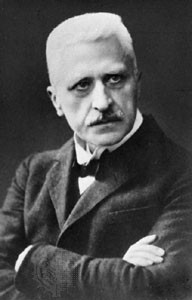 Remember that sense you had as a child, of endless possibility and endless texture and depth to the reality of existence all around you? We commented on it in a post on Christmas, as being relevant to the attempt to pause and contemplate the astonishing fact of existence. As children we felt the significance of our own existence, and of the existence of everything else. As adults we tend to take it for granted.
Remember that sense you had as a child, of endless possibility and endless texture and depth to the reality of existence all around you? We commented on it in a post on Christmas, as being relevant to the attempt to pause and contemplate the astonishing fact of existence. As children we felt the significance of our own existence, and of the existence of everything else. As adults we tend to take it for granted.
(Double Portrait of the Artist in Time, Helen Lundeberg, 1999, Smithsonian American Art)
Apart even from having an awareness of the gift of existence, consider something else that came with childhood; something that is sometimes referred to as “the numinous light of childhood.” It is the idea that as children, especially if we had a happy childhood, we had a sense of there being something beyond the brute facts of tangible reality. There was a sense that the reality of God was almost self-evident as an extension of the love relationships in this life. A sense that the alive-ness of the world around us had to have had its origins in something outside of the natural world that is so vivid to us.
William Wordsworth wrote of this numinous light, and its subsidence in adulthood, in his Intimations of Immortality From Recollections of Early Childhood:
THERE was a time when meadow, grove, and stream,
The earth, and every common sight,
To me did seem
Apparelled in celestial light,
The glory and the freshness of a dream.
It is not now as it hath been of yore;–
Turn wheresoe’er I may,
By night or day,
The things which I have seen I now can see no more.***
— But there’s a Tree, of many, one,
A single Field which I have looked upon,
Both of them speak of something that is gone:
The Pansy at my feet
Doth the same tale repeat:
Whither is fled the visionary gleam?
Where is it now, the glory and the dream?***

The word “numinous” itself suggests this presence beyond mere tangible objects in our world. The word’s origin is ascribed to Rudolf Otto (1860-1937), who explained the numinous as a “non-rational, non-sensory experience or feeling whose primary and immediate object is outside the self.” This feeling of numinous, holy presence is mysterious, and encompasses that which is both terrifying and fascinating at the same time—a feeling of the existence of One who is wholly other than the self and of other people, which leaves a person with a simultaneous feeling of infinite worth and yet smallness alongside the Author of that numinous feeling.
 That, we propose, is what children feel, but lose upon achieving adulthood, especially in this culture. In fact, that loss often effects or contributes to an emotional nadir among late teens and 20-something’s, which may cast them into a “slough of despond,” –a phrase from John Bunyan’s Pilgrim’s Progress–a period marked by disappointment and disillusionment.
That, we propose, is what children feel, but lose upon achieving adulthood, especially in this culture. In fact, that loss often effects or contributes to an emotional nadir among late teens and 20-something’s, which may cast them into a “slough of despond,” –a phrase from John Bunyan’s Pilgrim’s Progress–a period marked by disappointment and disillusionment.
And, it need hardly be added, it may result in misgivings about the existence of God, if they have not replaced this childhood apprehension of His presence with a more reasoned, adult conviction that He is.

2 thoughts on “Numinous Light”